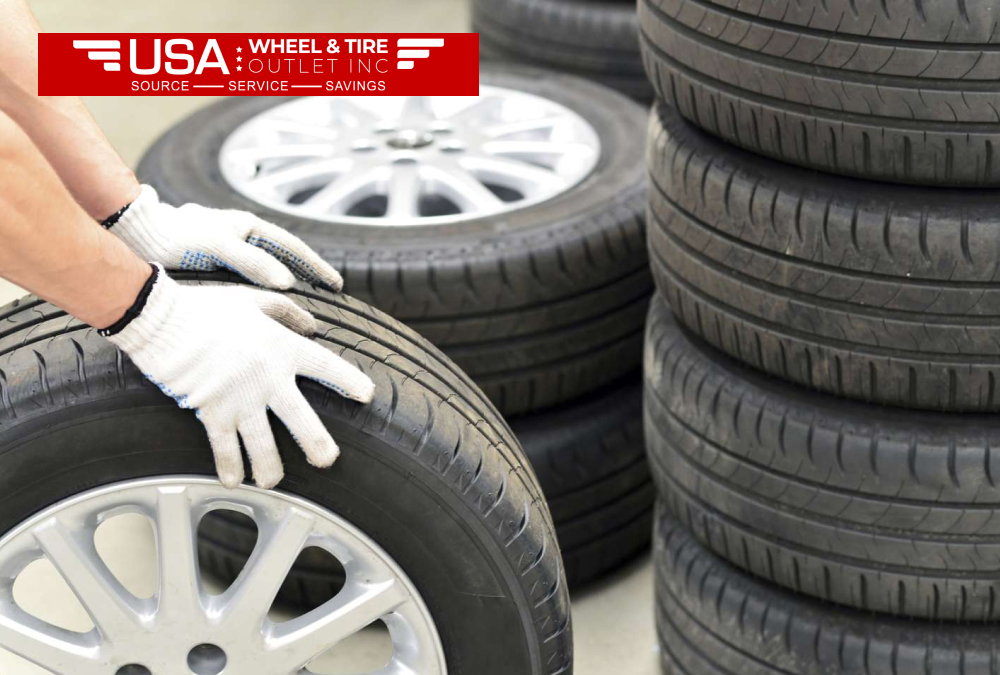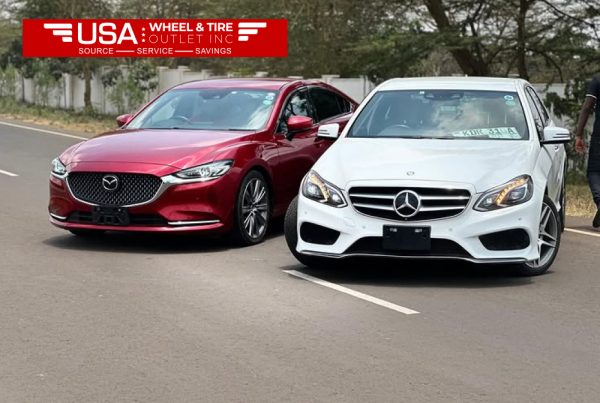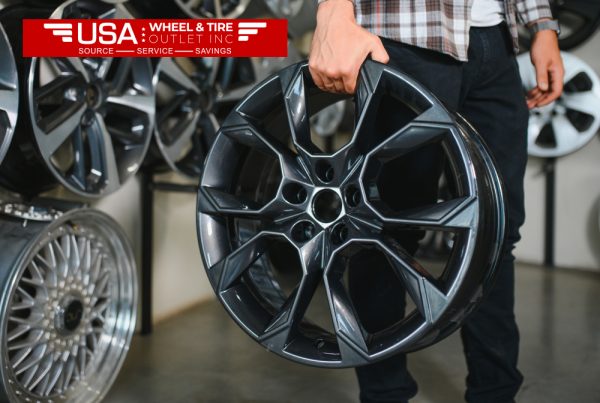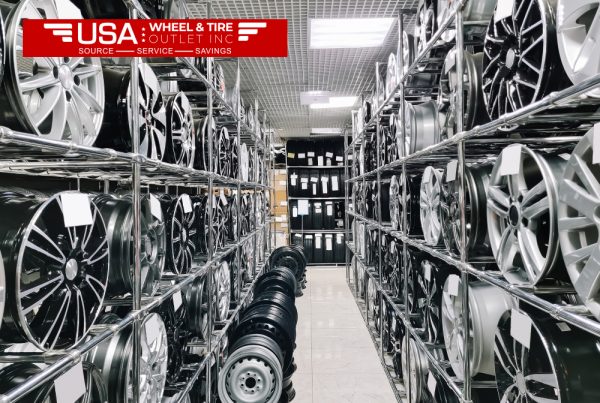It’s never been simpler to locate the ideal set of wheels to match your vehicle. With the convenience of shopping online, you don’t need to visit physical shops or undergo complex processes. If you’re wondering how to buy wheels online, you’re at the right spot. This guide will take you through the process of finding, selecting and fitting wheels in a breeze and will include key wheel fitment techniques, the advantages of custom wheels and many more.
Advantages of purchasing Wheels on the internet
The online shopping for wheels has many advantages over the conventional method. With USA Wheel & Tire, you can first explore an array of options from the comfort of your own home. There’s no need to drive to different stores to compare costs or designs—everything you need is right at your desk. Here are some advantages of purchasing wheels online:

1. Convenience
Shop at any moment, day or night. You don’t have to plan your day in advance to determine when retail stores will be open. Browse through the online stores, look at the various options and buy from the comfort of your home.
2. Wider Options
The online stores typically offer more wheels that physical shops. For traditional replacement wheels or custom-made wheels there are many kinds.
3. Competitive Prices
Numerous online wheel shops provide very competitive prices and discounts. In addition, you are able to check the prices on two websites to find the lowest price you can get.
4. Reviews and Ratings
One thing online shopping allows you to read reviews from other customers and ratings. This is very helpful when trying to assess the fitting and quality of your wheels.
5. Information of Product in Detail
Many online retailers provide full descriptions that include sizes, specifications and compatibility with various automobile models. Based on this info, you will be able choose the right wheels.
How to Shop for Wheels Online
The process of buying wheels online is a fairly simple process if you’re following the correct procedure. This is how you can go about it to find the best fitting wheels for your car.
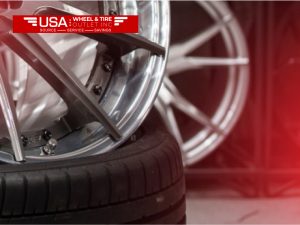
1. Know Your Vehicle’s Specifications
Learn the car’s specifications prior to beginning your look for it. These include:
Bolt Pattern: the number of bolts: that are on the wheel and the distance they are. This is a significant aspect to ensure that the wheel can be fit in your vehicle.
The size of the wheel: It’s composed of width, diameter, and offset. Different models of cars require different dimensions.
Tire Size: The wheels must be sized to match to the dimensions of your tires.
Type of Vehicle: type of wheels that are used in the car may differ to those used for a truck or the sedan.
If you’re unsure of all of these details look up your car’s manual or consult a professional.
2. Choose the appropriate kind of wheel
You’ll have a range of choices when purchasing wheels on the internet. They include:
Steel Wheels: are the best option to those seeking high-quality and affordable costs. They are fairly common and are great for everyday use but are less fashionable.
Alloy Wheels: They are lighter and more stunning. alloy wheels are available in many styles and designs. This is why alloy wheels are the most popular choice for people looking to personalize.
Custom Wheel:s Custom wheels are made to order and are customized according to size the finish, size, and design. Customized wheels are truly unique for your vehicle, however the custom wheels are more expensive.
If you’re looking for something distinctive, you can get customized wheels for your car. Be sure to verify whether they are compatible with your car’s specifications.
3. Wheel Fitment
The online wheel buying experience is all about the fitting wheels. If the wheel is not fit properly can cause problems with handling and uneven wear on the tires, and other safety issues. Here’s the information you must be aware of to ensure proper wheel fitment:
Diameter: It’s measured from one rim end to the opposite and should match the specifications on your vehicle.
Width: This is the measurement from the bead seat up to the opposite seat on the opposite side. Although wider tires may appear better, the wrong choice may cause performance issues.
Offset: The offset determines the distance that the wheel is either inside or outside of the fender. A wrong offset can lead to problems with clearance or tire rubbing.
Bolt Pattern: We discussed previously your bolt’s pattern can be crucial. Make sure you verify how many bolts as well as their distance on the vehicle before purchasing wheels.
Fitment: Fitting tools are accessible on a majority of the websites of online retailers You can enter the year, model, and model of your vehicle to locate the ideal wheels.
4. Set a Budget
The price of a wheel varies depending on the type of material, the manufacturer, and the level of customization. Consider how much you’re willing to spend prior to beginning your search. Custom wheels, for example may cost more than steel or alloy wheels. However, they do offer better performance and appearance.
Keep in mind that wheels are an ongoing purchase for your vehicle and it is wise to pay a little extra to get the highest quality that is available. Consider other costs such as tires, installation and balance.
Key Wheel Fitting Tips
A proper wheel fitment is important, not only to protect yourself, but also for efficiency. Here are some crucial wheel fitting tips that will ensure your wheels are the ideal fit for your car:
1. Crosscheck The Specification of Your Car
In order to do this, make sure that the wheels you choose are compatible with the ones your vehicle requires based on the information previously. If you’re not sure you are unsure, seek advice from an expert assistance or use an online tool for fitting on the retailer’s website.
2. Your Driving Habits
It is important to choose wheels designed to withstand extreme conditions, if you drive your vehicle off-road or under extreme conditions. The design and style may be more important to a typical driver.
3. Pay attention to offsets and backspacing
The backspacing and offset of a wheel affect the general position of your vehicle. If the fitting is not correct, it can cause the wheels to rub, which can cause damage to your suspension and tires. Be sure to are aware of the proper offset of your vehicle.
4. Choose the Right Tire Size
When you install custom wheels, make sure the tire’s diameter is suitable. It will help keep your car well-balanced and free from scratches, so make sure the speedometer readings will be accurate.
5. Don’t Forget the Center Bore
The term “center bore” refers to the hole that is located in the center of the wheel that is fitted on top of the hub. This is why the wheel’s central bore should be the same dimensions as that of the hub in your car to avoid any fit-related issues.
Custom Wheels: A Personal Touch for Your Ride
If you’re trying to make a statement with your vehicle, nothing quite like custom wheels. This is possible for all the wheels of the vehicle. They could have different designs and finish or dimensions. Thus, anyone seeking particular characteristics in their car can be sure to have customized wheels.
Materials that are available for the wheels are:
Aluminum Alloy: Lightweight with lots of fashion
Forged Aluminium: highly robust and durable, it is very rare to cracks.
Carbon Fiber: Very light weight, it is used in high performance vehicles.
When you are choosing your customized wheels, ensure they’re compatible with what you want from your vehicle and also your driving style.
Conclusion
Finding wheels on the internet has never been simpler. When you’re looking to upgrade with custom-made wheels, or replacing an old set the process is easy when you know what you are looking for. When you know the specifications of your car and choosing the appropriate kind of wheels and paying attention to how they fitting to ensure that the new wheels appear great and perform effectively.
Make sure you have custom wheels to provide your vehicle with that distinctive appearance, however a correct installation of wheels can guarantee the safety of your vehicle and a pleasurable experience. Be sure to make the right choice when selecting the best wheels for your car.
Understanding the Wheel Materials steel and. Alloy and. Forged Wheels
Shopping online for wheels is crucial to be aware of the different materials available, as it will affect not just the cost but as well the performance and style of your car. Let’s look at the most commonly used wheel material:
1. Steel Wheels
Wheels made of steel are among the most classic and economical. They are renowned for their the durability and strength. Steel wheels are less prone to bends and cracks which makes them suitable for tough driving conditions such as off-roading. However, they tend to weigh more than forged or alloy wheels, which can affect the performance of your vehicle such as fuel efficiency and handling.
Pros:
Advantages
Cons
2. Alloy Wheels
Alloy wheels are an amalgamation of aluminum and other alloys. They are more lightweight that steel ones. A lighter alloy wheel enhances performance through the reduction in unsprung weight and can increase fuel efficiency and improve handling. They are also available in a variety of styles and finishes, which makes them popular for their attractive appearance.
Pros
Disadvantages
3. Forged Wheels
Forged wheels are constructed from only one piece of steel which is heated and then shaped under pressure. This makes them the lightest and strongest option and provides better performance. Forged wheels are perfect for racing cars, and anyone needing maximum strength and light weight.
Pros:
Cons:
How to Maintain Your Wheels for Longevity
A regular maintenance schedule is crucial for ensuring that your wheels last a long time and perform at a high level. Here’s how to maintain your wheels following installation:
1. Regular Cleaning
Cleaning your wheels keeps their shine and also prevents dust and brake dust from accumulating on them and ultimately harming the surface of the wheels. Make use of a soft brush and gentle wheel cleaners to avoid scratches to their surfaces. Make sure your car’s wheels are cleaned regularly, particularly those who drive in areas with high levels of road salt and mud flow.
2. Examine for Damage
Inspect your wheels on a regular basis for any damage, such as cracks bends or scratches. If any problems are discovered, have the wheels examined and repaired by a professional. Any further driving with damaged wheels can affect the performance of your vehicle and could also be unsafe.
3. Tire Pressure Checking
Maintaining the proper pressure on your wheels and tires is vital to the longevity of your wheels and tires. Tires that are underinflated may cause additional tension on wheels and creating damage or deformation. Overinflated tires may cause irregular wear that can affect the alignment of the wheels. Be sure to monitor your tire’s pressure regularly and adjust it to the recommendation of the manufacturer.
4. Avoid Potholes and Rough Roads
A drive that is sloppy or over potholes terrain can cause major damages to the wheels of your vehicle. If you can, stay clear of these road hazards, or slow down your speed to reduce the impact. Even forged or alloy wheels may crack or bend when exposed to extreme conditions.
Read Also: Understanding Max Tire Pressure Valve Stem Ratings
FAQs
1. How do I install my new wheels?
Usually, installing new wheels requires stripping the old ones and putting the new ones by using the proper tools in this instance like the lug wrench and the jack. It is generally recommended to hire a professional to install it, even if alignment or balancing the wheels is required, it’s best to do so. If you decide to do it yourself, you should follow the guidelines of the manufacturer.
2. Are there any custom wheels that I can put to my vehicle?
Yes, you are able to install customized wheels for your car in the event that they meet the specifications for fitting wheels. Customized wheels feature personalised designs and distinctive designs, but you must determine their compatibility with the car’s bolt pattern, diameter, offset and other specifications. If you don’t know the right way to go about it, consult a professional or utilize online tools that can assist in verifying the compatibility.
3. How do I find my new tires’ size?
Its size is contingent on the dimension of the wheels you pick. When you upgrade or change wheels, ensure your new wheel are able to fitting your existing tires, or the ones you’re planning to purchase. The majority of online wheel stores will provide you a set of recommended tire sizes based on the dimensions of the wheel. Alternately, you can utilize a web-based tire calculator, or speak with a professional to determine the most appropriate size of tire for your brand new wheels.
4. Are alloy wheels superior to steel wheels?
The majority of alloy wheels are preferred over steel wheels because of their light weight, improved appearance and ability to disperse heat. They are employed for performance as well as appearance. However, steel wheels tend to last longer and less expensive however they are heavier and less attractive. The choice you make will be based on your budget and needs.
5. What are the benefits of purchasing wheels on the internet?
Shopping online for wheels has many advantages:
The convenience of shopping any time from anywhere.
Tools for fitting wheels online retailers usually have tools that will help you make sure the wheels fitting in your car.
6. Are custom wheels affecting the performance of my car?
Absolutely, It can affect your car’s performance. Wheels that are lighter tend to increase efficiency in fuel, more responsive and speed. However bigger heavier wheels could decrease performance and impact fuel economy, yet they can be visually appealing. Be sure that the wheels you pick are designed to be in line with your ideal degree of performance and aesthetics.
7. What is the price range for custom-made wheels?
Prices for custom-made wheel designs vary depending on the material and brand, size and design. If you’re searching for unique designs, you could purchase one at a cost between $100 and 1,000 dollars per wheel. The higher cost is to forged wheels and special materials like carbon fiber. So, make sure you set a budget and look around at online retailers.

